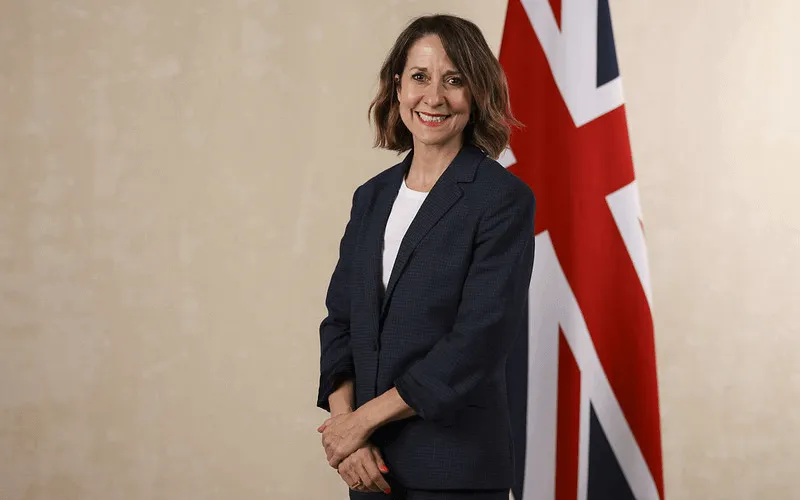After six days in which disabled adults were ignored in a series of announcements from the new government, Labour’s work and pensions secretary has this morning launched an attack on the “unacceptable” number of people on out-of-work benefits.
In its first six days of government, after a crushing general election victory, Labour had mentioned disabled people just once in more than 19,000 words across 28 speeches and press releases, and that brief reference focused on disabled children.
But on the seventh day, just after midnight, work and pensions secretary Liz Kendall announced that rising levels of economic inactivity were “unacceptable” and “immediate action” must be taken, stressing the “record 2.8 million people” who were out of work due to “long-term sickness”.
Although the language used was not as hostile as that used by the last Conservative government, Kendall still said this morning (Thursday) that economic inactivity was “holding Britain back” and was “bad for people, it’s bad for businesses, and it’s bad for growth”.
The early response this morning from at least some disabled people was that she was “blaming those too ill to work for holding Britain back”.
Kendall (pictured) said: “We’ll create more good jobs, make work pay, transform skills, and overhaul jobcentres, alongside action to tackle the root causes of worklessness including poor physical and mental health.”
She announced a new jobs and careers service; new work, health and skills plans for “the economically inactive”; and more opportunities for training, an apprenticeship or help to find work for all those aged 18 to 21.
She said more disabled people and those with health conditions would be supported to enter and stay in work, by devolving more power to local areas.
Health and social care secretary Wes Streeting had announced on Tuesday that cutting NHS waiting lists would “get Britain back to health and back to work”, and that his department would make economic growth a priority.
Analysis by Disability News Service (DNS) of the first six days’ public announcements on the government’s news and communications web page shows disabled adults were not mentioned at all by any ministers before Kendall’s announcement.
The only mention of disability was in a press release announcing the appointment of a non-executive board member by the Department for Education (DfE).
The DfE said in the press release that the education and care system “does not currently meet the needs of all children, particularly those with Special Educational Needs and Disabilities (SEND)”.
And it said that “earlier interventions in mainstream schools” was “key for those with less complex needs”.
It announced that DfE would “restructure” its department to “ensure that improving inclusion in mainstream schools is the heart of our plans to improve opportunity for those children with SEND”.
It plans to bring policy on SEND and alternative provision under the responsibility of its schools group, one of the department’s six subdivisions that are each led by a director general.
None of the other releases by the government in its first six days in post mentioned disabled people, including a release describing Labour’s “six first steps for change”, or Keir Starmer’s first speech as prime minister, delivered outside 10 Downing Street.
Wes Streeting, the new health and social care secretary, managed to deliver his first speech in his new role without even mentioning social care, while transport secretary Louise Haigh set out her five “strategic priorities” without any mention of the huge access barriers disabled people face in using public transport.
Dr Marie Tidball, one of the new disabled Labour MPs (see separate story), suggested that disabled people should not read too much into this analysis.
Speaking before Kendall’s work and pensions announcement, she told DNS yesterday: “We’re not even a week in, and I think the damage that the past government did over the last 14 years is so great, there’s so much work to do across every aspect of government.
“But I think the fact that the social model is very much embedded in the manifesto, that the party has worked so hard to increase representation of a whole diverse range of people, including disabled candidates in key seats, should fill people with enthusiasm and excitement.”
She said Labour would be “mainstreaming disability” by ensuring that “every aspect of the way that we’re doing government is integrating it within it”.
Tidball highlighted key areas in Labour’s manifesto, including pledges on disability employment, education and skills, that will benefit disabled people.
She also pointed to the government’s policies on mental health, including putting mental health workers in every secondary school, and she said that one of the party’s five missions to rebuild Britain was to “break down barriers to opportunity”, which she said was “the social model writ large in one whole strand of the manifesto”.
Picture by Lauren Hurley, No 10 Downing Street
A note from the editor:
Please consider making a voluntary financial contribution to support the work of DNS and allow it to continue producing independent, carefully-researched news stories that focus on the lives and rights of disabled people and their user-led organisations.
Please do not contribute if you cannot afford to do so, and please note that DNS is not a charity. It is run and owned by disabled journalist John Pring and has been from its launch in April 2009.
Thank you for anything you can do to support the work of DNS…

 Disabled people’s organisations tell Kendall benefit cuts are ‘incredibly dangerous’ and consultation is a ‘sham’
Disabled people’s organisations tell Kendall benefit cuts are ‘incredibly dangerous’ and consultation is a ‘sham’ Starmer faces disabled people’s fears as senior MPs quiz him over benefit cuts
Starmer faces disabled people’s fears as senior MPs quiz him over benefit cuts MP warns prime minister his social care delays risk reform being ‘kiboshed’ at next general election
MP warns prime minister his social care delays risk reform being ‘kiboshed’ at next general election